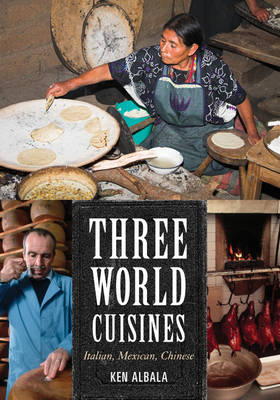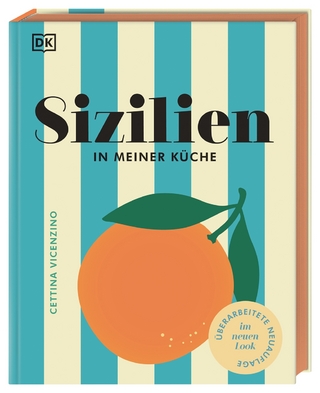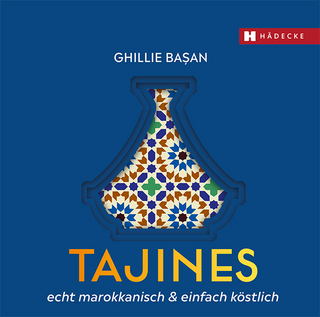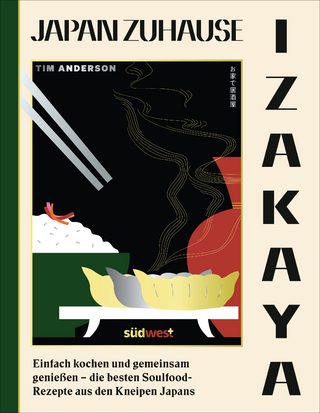
Three World Cuisines
Altamira Press (Verlag)
978-0-7591-2126-3 (ISBN)
- Titel ist leider vergriffen;
keine Neuauflage - Artikel merken
The text begins with a comprehensive theory of cuisine in the introduction and moves to the parallel culinary histories of Italy, Mexico, and China: the independent domestication of crops in each, the social, political, and technological developments that gave rise to each cuisine, and cooking in both professional and home settings. It also compares the internal logic of the cooking style and techniques in a way that will resonate with students. The meat of the text compares and contrasts the three cuisines in chapters on grains and starches; vegetables; fruits and nuts; meat, poultry, and dairy products; fish and shellfish; fats and flavorings; and beverages. Readers are taken on a fascinating journey of discovery, where the background story of mis-transmission, adaptation, and evolution of cooking as it spreads around the globe with trade and immigration is revealed. It answers the big questions, such as, why did the wok prevail in China, while the sautée pan and comal were used in Italy and Mexico, respectively? Why is bread baked in the Mediterranean but more often steamed in the Far East? How are certain ingredients used in completely different ways by different cultures and why? Why is corn transformed into tortillas and tamales in one place and into polenta in another? Why do we find tomato salsa in the Americas, long-cooked sauces in Italy, and tomatoes mixed with scrambled eggs in China? Albala also challenges the notion of authenticity, providing ample evidence that cuisines are constantly evolving, adapting over time according to ingredients and cooking technologies. More than 150 of Albala’s recipes complete the instruction, inspiring readers to learn how to cook in a fundamental way.
Ken Albala is Professor of History at the University of the Pacific and author or editor of 22 books on food including Eating Right in the Renaissance, Food in Early Modern Europe, Cooking in Europe 1250-1650, The Banquet, Beans (winner of the 2008 IACP Jane Grigson Award), Pancake, and recently Grow Food, Cook Food, Share Food and Nuts: A Global History. He was co-editor of the journal Food, Culture and Society and has also co-edited The Business of Food, Human Cuisine, Food and Faith and edited A Cultural History of Food: The Renaissance and The Routledge International Handbook to Food Studies. Albala was editor of the Food Cultures Around the World series, the 4-volume Food Cultures of the World Encyclopedia and is now series editor of Rowman and Littlefield Studies in Food and Gastronomy for which he has written Three World Cuisines: Italian, Chinese, Mexican (winner of the Gourmand World Cookbook Awards best foreign cuisine book in the world for 2012). He has also co-authored two cookbooks: The Lost Art of Real Cooking and The Lost Arts of Hearth and Home. His latest works are a Food History Reader: Primary Sources and a translation of the 16th century cookbook Livre fort excellent de cuysine. His 36 episode course Food: A Cultural Culinary History is available on DVD from the Great Courses company. Albala has also just finished editing a 3 volume encyclopedia on Food Issues which will be published in the summer of 2015. https://rowman.com/page/foodstudies/
List of Figures
List of Recipes
A Note on the Recipes
Introduction: A Theory of Gastronomy
Chapter 1. Historical Background
Chapter 2. Technology, Utensils, and Techniques
Chapter 3. Grains and Starches
Chapter 4. Vegetables
Chapter 5. Fruits and Nuts
Chapter 6. Meat, Poultry, and Dairy Products
Chapter 7. Fish and Shellfish
Chapter 8. Fats and Flavorings
Chapter 9. Beverages
Glossary
Bibliography
Index
| Erscheint lt. Verlag | 3.5.2012 |
|---|---|
| Reihe/Serie | Rowman & Littlefield Studies in Food and Gastronomy |
| Verlagsort | California |
| Sprache | englisch |
| Maße | 176 x 260 mm |
| Gewicht | 671 g |
| Themenwelt | Sachbuch/Ratgeber ► Essen / Trinken ► Länderküchen |
| Weitere Fachgebiete ► Handwerk | |
| ISBN-10 | 0-7591-2126-5 / 0759121265 |
| ISBN-13 | 978-0-7591-2126-3 / 9780759121263 |
| Zustand | Neuware |
| Haben Sie eine Frage zum Produkt? |
aus dem Bereich


